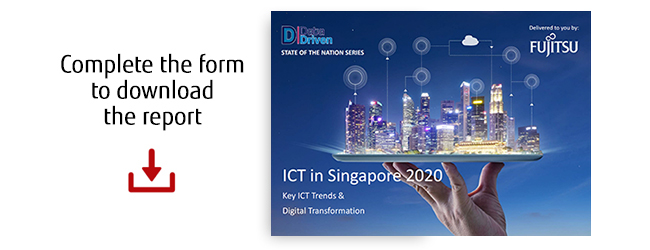
Significant progress of cybersecurity and business continuity initiatives in Singapore
How many organizations are making significant progress with business continuity and cybersecurity initiatives? Fujitsu commissioned DataDriven, an Asia/Pacific based research and advisory firm to conduct a major study of 125 ICT decision makers in Singapore. The survey asked Singaporean ICT decision makers to identify their level of progress in cybersecurity and business continuity across a range of key business operations areas. Cybersecurity and business continuity have many aspects, from the protection of individual devices to the protection of the enterprise.
The majority of Singaporean organizations say they are making significant progress with business continuity and cybersecurity initiatives. Around half report that they are mature or well underway with programs in the areas of finance (52.8%), customer service (48.0%), and within the ICT department (46.4%). Other areas of the business with significant cyber security investment include HR, logistics, and staff health and welfare.
Overall 40.5% of respondents have made progress in at least one area, with another 35.5% having with conducted a pilot or created a cybersecurity roadmap. But almost one quarter (24.1%) have not started with any significant cyber security initiatives.
Leaders rate security and data privacy as their biggest challenges
Security related matters rate as the toughest challenges facing Singaporean ICT decision makers. At the top of the list are email security (mentioned as an important challenge by 70% of respondents), data center security (69.1%), network security (68.3%) and securing the cloud (65.6%).
Singaporean enterprises are increasingly moving processing to co-located data centers or the cloud. When asked what criteria are most important when making cloud supplier selections, the most important factor is the security of the service (mentioned by 72% of respondents), followed by high reliability (67.2%).
Respondents to the survey are also concerned about international data privacy regulations and enterprise security, which both rated as significant challenges with 60.7% of organisations.
Keeping the lights on
Related to security is the important area of business continuity – the ability to keep the lights on in the face of security and environmental challenges. Business continuity rates as a very important issue by 59.5% of respondents.
Business continuity technologies and techniques such as backup, recovery and archive systems have the greatest level of implementation and the highest level of planned investment. Enterprise disaster recovery , offsite storage, mission critical cloud backup and both synchronous and asynchronous replication also have relatively high levels of implementation, and significant levels of investment are planned. Redundant offsite systems are set for moderate levels of investment.
Cybersecurity and business continuity involve constantly changing technology. There are many excellent point solutions, a range of comprehensive suites and a large services and systems integration industry that provide clients with solutions based on a range of products. But malicious players are constantly employing new techniques and technologies. It is a new arms race, and there is no one size fits all solution.
To find out how Fujitsu can help your organisation with your cybersecurity and business continuity organization’s optimum ICT strategy and fulfil the many opportunities for digital transformation, contact us today.
To read the full research report, complete the form.

